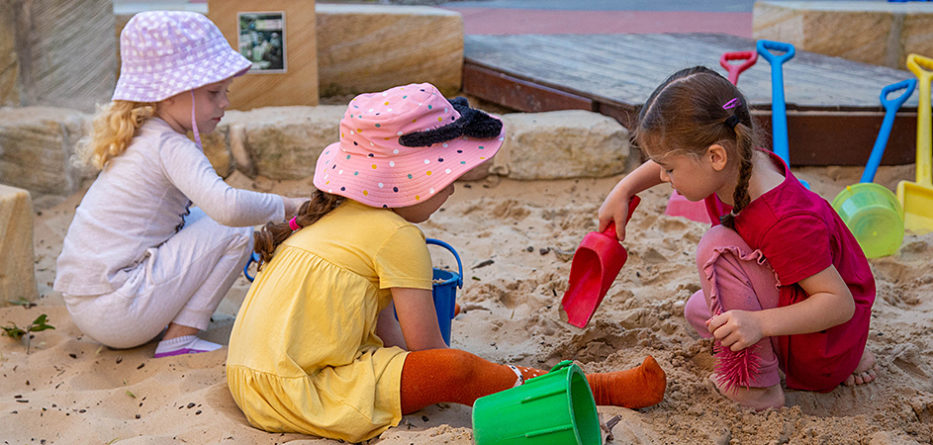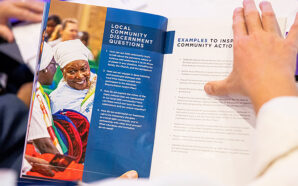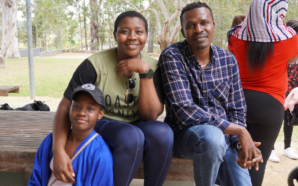Are your children’s friendships confusing at times? The good news is that there are things parents can do to nurture them along on the road to making good friends, and becoming “bucket fillers”.
Every parent knows that one of the big life lessons for their children is how to make friends. One of the first questions parents often ask Jo Bird, Director at St Luke’s Catholic Early Learning Centre (CELC) at Marsden Park is: “Are they playing with other children?”
Jo cautions parents not to get too worried if it seems to take some time, particularly when they are aged under five.
Wanting to play with others is a natural stage in a child’s development. Children reach this point at different times, she says. However, says Jo, they all need a little guidance on how to approach and make friends. This can be indirect or sometimes explicit.
She gives children the benefit of the doubt when they display “difficult behaviour” up until about age six. “Until that time, they are still learning, and it takes some children longer than others to demonstrate appropriate behaviours,” she says.
Jo outlines the key stages. “At about age three we see children playing side by side,” she says. “They may sit down next to a child doing the same thing they want to do, such as playing with blocks or a toy kitchen. Just being around another child is enough.
“As they get to ages four and five, they will start to make strong bonds with other children based on their age and common interests. We see children say to each other things like ‘You’re four and I’m four and we both like dinosaurs, so we are friends’.”
There are times, of course, when some children want to find new friends to play with. It’s hard for some children to understand why their friend wants to play with someone else. It can lead some children feeling hurt, occasionally in tears.
This is where an adult can come in to explain about making choices around friends. “We explain to the children who are upset that it’s not that the other person doesn’t like them, they just want to play with someone else,” says Jo.
St Luke’s CELC is in the grounds of St Luke’s Catholic College. Learning to communicate with others, and managing emotions are core to the building of friendships at St Luke’s and are applied from early learning through to Year 12. Catholic values add another dimension and reinforce the approach children need to have around successful friendships.
Children at the CELC have ‘Godly playtime’ where they actively learn about values taught in the scriptures such as kindness and forgiveness. Their “Friendship Wall” celebrates friendships between the children, and they learn to fill their “friendship bucket” with things that are important in making and keeping friends, like smiling, caring, and helping others.
Tips for teaching young children about friendship:
- Have patience and remember children are at different stages. Some may take longer to learn social skills.
- Manners are important. Teach your children to say hello when they meet someone and look them in the eye. Show them how to make someone feel welcome.
- Talk to your children about the things they can do to make friends, like smiling and helping others. Play games with them and act out how good friends behave.
- Help your children to understand some people like to change friends and not take it personally if someone decides not to play with them.
- Encourage a diverse range of friends for your children. Try making some friends across different cultures too.
- Adults should model appropriate behaviour around their own friends. This includes how they talk about their friends.
- Remember children don’t necessarily do what you say, but they will be listening, watching and taking in everything that you do.
This article was originally featured in the Ordinary Time/Winter 2021 Edition of the Catholic Outlook Magazine.








